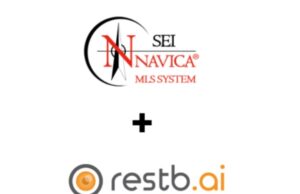Grants provided by HUD’s Indian Community Development Block Grant Program
WASHINGTON, DC – September 20, 2011 – (RealEstateRama) — Today, the U.S. Department of Housing and Urban Development awarded more than $8.3 million in grants to tribal communities in nine states to improve or create housing and economic development opportunities for low- to moderate-income families. The competitive grants are provided through HUD’s Indian Community Development Block Grant (ICDBG) Program to support a wide variety of community development and affordable housing activities.
“These funds will help American Indian and Alaska Native tribal governments create sustainable and community-driven solutions,” said HUD Secretary Shaun Donovan. “Housing and infrastructure needs in Indian Country are severe and widespread. I’m inspired by the work the tribal communities are taking on to leverage these funds and get their communities on the right track.”
For example, the native village of Kwinhagak in Alaska will expand its stock of energy-efficient, Arctic-appropriate housing, using both modern and native building technologies. Comanche Nation Housing Authority of Oklahoma will rehab more than two dozen houses for families currently living in substandard homes, including new roofs, doors, windows, insulation, electrical system and plumbing repairs, siding, flooring, cabinets and counters, and HVAC upgrades. In White Earth, New Mexico, a new 12,800-square-foot Workforce Development Center will provide workforce skills and vocational training to assist tribal members in obtaining employment.
In California, the Quechan Tribe will improve roads and sidewalks in a neighborhood with predominantly low and very-low income families with high amounts of foot traffic. In California, the Yurok Reservation will get multipurpose park and recreation facility. In Montana, families at the Mutual Help project in Northern Cheyenne will have their homes rehabbed to reduce the amount of substandard housing in the community.
The ICDBG program was established in 1977 to help Indian tribes and Alaska Native villages to meet their community development needs. Federally recognized Indian tribes, bands, groups or nations (including Alaska Indian, Aleuts and Eskimos,) or Alaska Native villages compete for this funding. The recipients use the funding to develop viable communities, including rehabilitating housing or building new housing or to buy land to support new housing construction.
The funding can also be used to build infrastructure such as roads, water and sewer facilities, and to create suitable living environments. To spur economic development, recipients have used the grants to establish a wide variety of commercial, industrial and agricultural projects. The grants have been used to build community and health centers, or to start businesses to support the community, such as shopping centers, manufacturing plants, restaurants or convenient stores/gas stations.
###
HUD’s mission is to create strong, sustainable, inclusive communities and quality affordable homes for all. HUD is working to strengthen the housing market to bolster the economy and protect consumers; meet the need for quality affordable rental homes: utilize housing as a platform for improving quality of life; build inclusive and sustainable communities free from discrimination; and transform the way HUD does business. More information about HUD and its programs is available on the Internet at www.hud.gov and espanol.hud.gov. You can also follow HUD on twitter @HUDnews, on facebook at www.facebook.com/HUD, or sign up for news alerts on HUD’s News Listserv.
FY 2011 Indian Community Development Block Grants
| State | Recipient | City |
Amount |
|||
| Alaska | Native Village of Kwinhagak | Quinhagak |
600,000 |
|||
| Alaska | Knik Tribe | Wasilla |
81,668 |
|||
| California | Quechan Tribally Designated | Winterhaven |
169,217 |
|||
| Montana | Salish & Kootenai Housing Authority | Pablo |
641,578 |
|||
| New Mexico | Mescalero Housing Authority | Mescalero |
655,783 |
|||
| Oklahoma | Seneca-Cayuga Tribe | Grove |
718,962 |
|||
| Oregon | Coos, Lower Umpqua Siuslaw | Coos Bay |
500,000 |
|||
| Oregon | Coquille Indian Housing | Coos Bay |
500,000 |
|||
| Oregon | Klamath Indian Tribe | Chiloquin |
500,000 |
|||
| South Dakota | Crow Creek Housing Authority | Fort Thompson |
900,000 |
|||
| South Dakota | Oglala Sioux (Lakota) Housing Authority | Pine Ridge |
1,100,000 |
|||
| Washington | Lummi Tribal Housing | Bellingham |
495,795 |
|||
| Washington | Puyallup Nation Housing | Tacoma |
500,000 |
|||
| Washington | Swinomish Housing Authority | La Conner |
500,000 |
|||
| Washington | Spokane Tribe | Wellpinit |
112,454 |
|||
| Wisconsin | St. Croix Chippewa Indians | Webster |
370,116 |
|||
| TOTAL: $8,345,573 | ||||||










